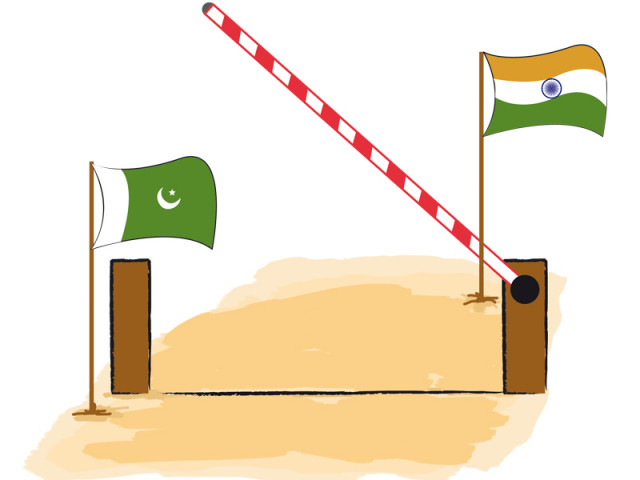Trade ties, by any other name
We believe trade policy should be transferred to parliament, taxation issues be decided by elected representatives.

We have pointed out earlier that MFN status simply means not discriminating against goods and services originating in India. ILLUSTRATION: TALHA AHMED KHAN
We have pointed out earlier that MFN status simply means not discriminating against goods and services originating in India, and that granting this status is a treaty obligation for Pakistan under its accession to the World Trade Organisation. It seems that somebody in the commerce ministry belatedly got the brilliant idea of calling it what it is, not what trade negotiators in Uruguay decided to name it two decades ago. However, while we are glad the government appears committed to moving the process ahead, we do believe it needs to modify its approach in order to ensure that trade liberalisation goes ahead without a problem. While it is true that the Cabinet has the prerogative to decide on trade policy, since many of the barriers are administrative in nature, we believe that a more appropriate venue for making trade policy decisions is parliament. Not only would the debate take place in a more open platform, relatively free from undue influence exerted by lobbying groups, but it would also serve to ensure that better trade ties with India become a policy on which we achieve a national consensus.
In addition, we also believe trade policy should be transferred to parliament and matters relating to taxation should only be decided upon by elected representatives. By renaming MFN, the government has bet that openness and honesty with the people of Pakistan might work. It should try it on other matters of policy as well.
Published in The Express Tribune, March 5th, 2014.
Like Opinion & Editorial on Facebook, follow @ETOpEd on Twitter to receive all updates on all our daily pieces.















COMMENTS
Comments are moderated and generally will be posted if they are on-topic and not abusive.
For more information, please see our Comments FAQ